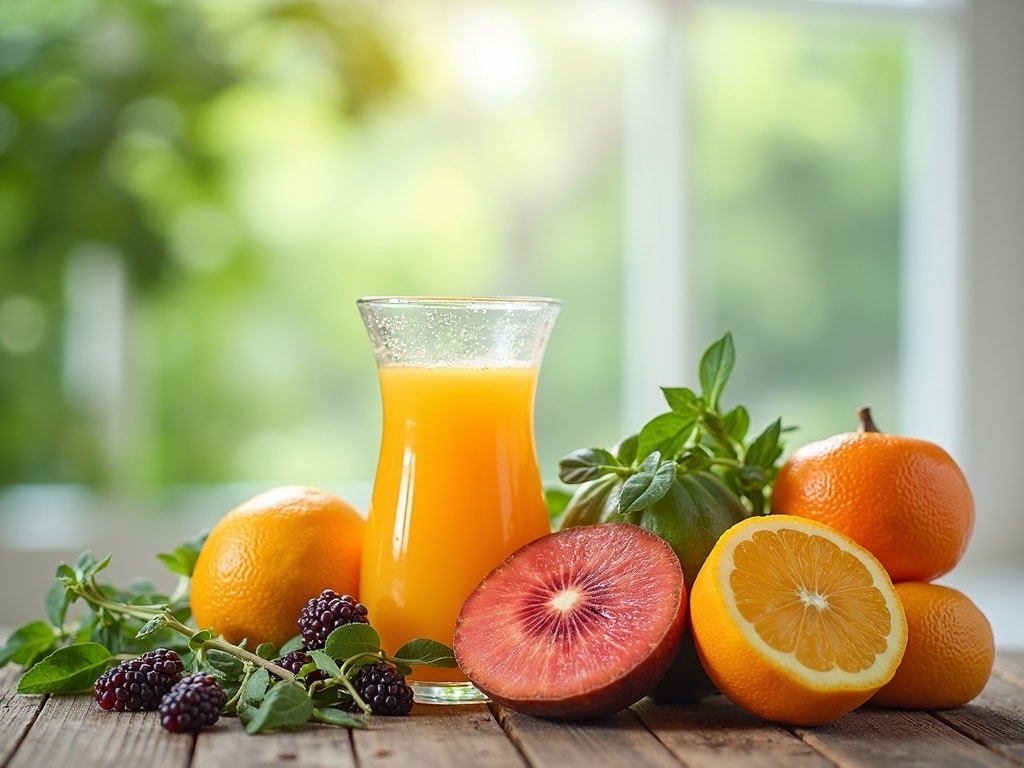Here's your article:
How to Get Electrolytes Naturally: Fueling Your Body the Healthy Way
Imagine crossing the finish line of a marathon, the sun beating down, sweat stinging your eyes. Or picture yourself battling a nasty flu, weak and dehydrated. What does your body crave most? Chances are, it’s not just water – it's electrolytes. These tiny but mighty minerals are essential for everything from muscle function to nerve impulses. And while sports drinks are a common go-to, they often come loaded with sugars and artificial ingredients. But what if you could replenish your electrolytes naturally, through the foods you eat and the lifestyle choices you make? Let's dive into how to get electrolytes naturally and keep your body humming.
What are Electrolytes and Why Do We Need Them?
Electrolytes are minerals in your body that have an electric charge. They’re found in your blood, urine, and sweat. The main electrolytes include:
- Sodium
- Potassium
- Magnesium
- Calcium
- Chloride
- Phosphate
Think of electrolytes as the conductors of your body’s electrical grid. They play a vital role in:
- Hydration: Electrolytes help regulate fluid balance, ensuring cells receive the hydration they need.
- Muscle Function: They enable muscle contractions, from your heartbeat to the movements you make during exercise.
- Nerve Impulses: Electrolytes facilitate the transmission of signals along nerves, allowing your brain to communicate with your body.
- pH Balance: They help maintain the proper acid-base balance in your blood.
When electrolyte levels are too low or too high, it can disrupt these critical functions, leading to symptoms like muscle cramps, fatigue, headaches, and even more serious health issues.
Common Causes of Electrolyte Imbalance
Electrolyte imbalances can occur due to a variety of factors. Understanding these can help you take proactive steps to maintain healthy levels:
- Excessive Sweating: Intense physical activity, especially in hot weather, can lead to significant electrolyte loss through sweat.
- Dehydration: Not drinking enough fluids, especially when combined with sweating, vomiting, or diarrhea, can concentrate electrolytes and throw off the balance.
- Illness: Vomiting and diarrhea, common symptoms of many illnesses, can deplete electrolytes rapidly.
- Certain Medications: Diuretics, for example, can increase electrolyte excretion through urine.
- Kidney Problems: The kidneys play a crucial role in regulating electrolyte balance. Kidney disease or dysfunction can disrupt this process.
- Poor Diet: A diet lacking in essential nutrients can contribute to electrolyte deficiencies.
Top Natural Sources of Electrolytes
Now for the good stuff! How can you get these vital minerals without relying on sugary sports drinks? The answer lies in a colorful, varied, and whole-foods-based diet. Here are some powerhouse foods to incorporate:
Potassium-Rich Foods
Potassium is crucial for maintaining healthy blood pressure, muscle function, and nerve transmission.
- Bananas: The classic potassium source! Easy to eat on the go and packed with other beneficial nutrients.
- Sweet Potatoes: A delicious and versatile option, offering a good dose of potassium along with fiber and vitamins.
- Avocados: Creamy, healthy fats and a surprising amount of potassium make avocados a nutritional superstar.
- Spinach: This leafy green is not only rich in potassium but also in magnesium and other essential minerals.
- Coconut Water: A naturally hydrating beverage with a good balance of electrolytes.
Sodium-Rich Foods
Sodium is essential for fluid balance and nerve function. While it’s important not to overdo it on sodium, especially processed foods, you do need a certain amount to function properly.
- Sea Salt: Unlike processed table salt, sea salt contains trace minerals that can be beneficial. Use it in moderation to season your food.
- Pickles and Fermented Vegetables: The fermentation process naturally increases the sodium content of these foods. Plus, they offer probiotic benefits for gut health.
- Olives: A salty and satisfying snack that provides a dose of sodium along with healthy fats.
- Bone Broth: Simmering bones releases minerals, including sodium, into the broth.
Magnesium-Rich Foods
Magnesium is involved in over 300 enzymatic reactions in the body, including muscle and nerve function, blood sugar control, and blood pressure regulation.
- Dark Chocolate: Yes, you can get electrolytes from chocolate! Choose dark chocolate with a high cacao content for the most benefits.
- Nuts and Seeds: Almonds, cashews, pumpkin seeds, and chia seeds are all good sources of magnesium.
- Legumes: Beans, lentils, and chickpeas provide magnesium along with fiber and protein.
- Whole Grains: Brown rice, quinoa, and oats offer magnesium and other essential nutrients.
Calcium-Rich Foods
Calcium is essential for strong bones and teeth, muscle function, and nerve transmission.
- Dairy Products: Milk, yogurt, and cheese are excellent sources of calcium.
- Leafy Green Vegetables: Kale, collard greens, and spinach provide calcium along with other vitamins and minerals.
- Fortified Plant-Based Milks: Almond milk, soy milk, and oat milk are often fortified with calcium.
- Tofu: Tofu that is processed with calcium sulfate is a good source of calcium.
Homemade Electrolyte Drink Recipes
Want to create your own electrolyte-replenishing beverages? Here are a couple of simple and delicious recipes:
Citrus Electrolyte Drink
Ingredients:
- 1 cup water
- 1/2 cup orange juice
- 1/4 cup lemon juice
- 1/4 teaspoon sea salt
- 1 tablespoon honey or maple syrup (optional)
Instructions: Combine all ingredients in a glass or shaker and mix well until the salt is dissolved. Adjust sweetness to your liking.
Coconut Water Electrolyte Drink
Ingredients:
- 1 cup coconut water
- 1/2 cup water
- 1/4 teaspoon sea salt
- Juice of 1/2 lime
Instructions: Combine all ingredients in a glass or shaker and mix well until the salt is dissolved.
Tips for Maintaining Healthy Electrolyte Levels
Beyond diet, here are some lifestyle tips to help you maintain optimal electrolyte balance:
- Stay Hydrated: Drink plenty of water throughout the day, especially during and after exercise.
- Listen to Your Body: Pay attention to signs of dehydration or electrolyte imbalance, such as muscle cramps, fatigue, or headaches.
- Replenish After Exercise: After intense workouts, focus on replenishing electrolytes through food or homemade electrolyte drinks.
- Avoid Over-Hydration: Drinking too much water without electrolytes can actually dilute your electrolyte levels, leading to a condition called hyponatremia.
- Consider Electrolyte Supplements: If you have a medical condition or engage in very strenuous activity, talk to your doctor about whether electrolyte supplements are right for you.

When to Seek Medical Attention
While often manageable at home, electrolyte imbalances can sometimes be a sign of a more serious underlying condition. Seek medical attention if you experience any of the following:
- Severe muscle weakness or paralysis
- Irregular heartbeat
- Confusion or disorientation
- Seizures
- Persistent vomiting or diarrhea
Electrolytes and Skin Health: The Connection
You might be wondering what electrolytes have to do with skin health. Well, the connection is more significant than you might think. Electrolytes play a crucial role in maintaining skin hydration. Proper hydration is essential for skin elasticity, preventing dryness, and maintaining a healthy complexion. Dehydration, often linked to electrolyte imbalance, can lead to dry, flaky skin, increased sensitivity, and even accelerate the appearance of wrinkles. By ensuring adequate electrolyte intake, you're not just supporting internal bodily functions but also contributing to the overall health and appearance of your skin. Making sure you understand how to get electrolytes naturally means approaching skincare from the inside out.
Electrolytes for Specific Situations
The need for electrolytes can vary depending on your lifestyle and circumstances. Here's a quick guide to adjusting your electrolyte intake based on specific situations:
Athletes
Athletes, especially endurance athletes, lose a significant amount of electrolytes through sweat. They need to focus on replenishing these electrolytes during and after training or competition. Sports drinks can be helpful, but natural sources like coconut water, bananas, and electrolyte-rich meals are also crucial.
Travelers
Traveling, especially to hot climates, can increase the risk of dehydration and electrolyte imbalances. Be sure to drink plenty of water and consume electrolyte-rich foods. If you're prone to digestive issues while traveling, consider packing some oral rehydration salts or making your own electrolyte drink.
Those Recovering from Illness
Vomiting and diarrhea can quickly deplete electrolytes. Focus on rehydrating with electrolyte-rich fluids and consuming easily digestible foods. Bone broth, clear broths, and homemade electrolyte drinks can be particularly helpful.
Seniors
Older adults are more susceptible to dehydration and electrolyte imbalances due to age-related changes in kidney function and thirst response. Encourage them to drink plenty of water and consume electrolyte-rich foods.
The Bottom Line
Replenishing electrolytes naturally is not only possible, it’s a healthier and more sustainable way to fuel your body. By incorporating electrolyte-rich foods into your diet, staying hydrated, and paying attention to your body's needs, you can maintain optimal electrolyte balance and support overall health and well-being. So, ditch the sugary sports drinks and embrace the power of nature to keep your body humming!

